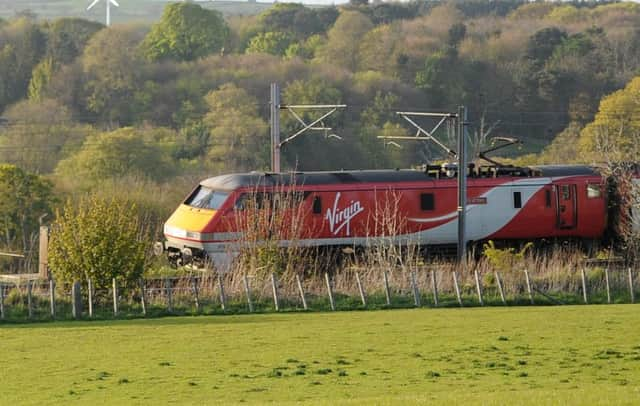Stagecoach pays price for failed East Coast franchise


The group, which ran the line as a joint venture with Virgin, said it was “disappointed” by the costs of the failed franchise.
The East Coast Main Line – a vital route between London and Scotland – was taken back into public control by the government on Sunday after Stagecoach and Virgin failed to achieve revenue targets.
Advertisement
Hide AdAdvertisement
Hide AdIt is now being run by the Department for Transport’s (DfT) Operator of Last Resort, and branded as London North Eastern Railway (LNER).
Details of the financial impact of losing the franchise came as Stagecoach reported a 4.1 per cent fall in underlying pre-tax profits to £144.8m for the year to 28 April.
On a statutory basis, profits rose to £95.3m from £17.9m the previous year, when it was hit by £133m of one-off costs.
Stagecoach chief executive Martin Griffiths said: “I am disappointed to be reporting significant exceptional costs in respect of Virgin Trains East Coast but I am pleased that there is now clarity for both customers and shareholders.”
He added: “We have examined our bid for and operation of the franchise closely and have also looked more broadly at our rail bid governance.
“We involved external advisers in that, and we have made changes to our processes to strengthen our approach to bidding and contract management in UK rail. The lessons learnt have been reflected in our subsequent bids.”
Stagecoach saw annual operating profits slump 12.6 per cent to £24.9m at its rail division, while revenues tumbled 30.8 per cent to £1.5 billion. But like-for-like rail revenues lifted 3.6 per cent over the year.
It warned that earnings for the rail arm are set to fall again over the new financial year as profits from its East Midlands franchise are offset by costs of bidding for new business.
Advertisement
Hide AdAdvertisement
Hide AdThe firm is working on bids for new South Eastern, West Coast Partnership and East Midlands rail franchises.
Elsewhere in the business, its UK bus earnings slipped to £112.9m from £117m the previous year, while the London bus business also saw operating profits drop, to £13.3m from £18.4m.
Its north American arm delivered a rise in earnings to £21m from £18.2m the previous year.
In a blow to investors, the group slashed its full-year dividend to 7.7p a share from 11.9p the prior year.